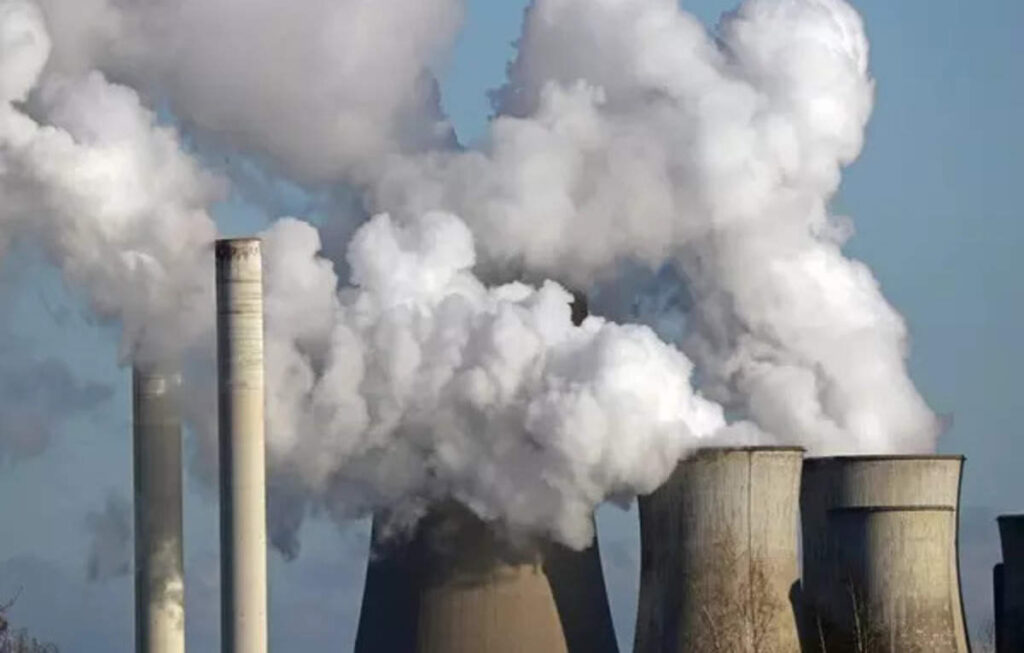The final declaration from the G7 Climate, Energy and Environment Ministers meeting in Turin, Italy, was issued on Tuesday, confirming the unanimous agreement of all seven nations to eliminate coal-powered energy production within their borders by 2035.
Though not ambitious enough to meet the goals of the Paris Climate Agreement, it was a step forward on the globe’s path towards decarbonising its energy systems when Group of Seven (G7) Climate, Energy and Environment Ministers agreed to phase out coal energy in their countries by 2035.
The news is particularly noteworthy and seen as a big step for the US and Japan, the only outlying G7 countries not to have set a coal phase-out date.
The G7 is an informal grouping of the world’s largest developed economies and democracies and is made up of the US, Britain, Canada, France, Germany, Italy and Japan. According to the international energy agency the G7 members – and the European Union – account for about 40% of the global economy, 30% of energy demand and 25% of energy system CO2 emissions.
The declaration builds on the agreement reached at COP28 in Dubai in 2023, where 200 parties accepted a decision text that called for: “Transitioning away from fossil fuels in energy systems, in a just, orderly and equitable manner, accelerating action in this critical decade, so as to achieve net zero by 2050 in keeping with the science… [and] phasing out inefficient fossil fuel subsidies that do not address energy poverty or just transitions, as soon as possible.”
In the communique announcing the decision, the ministers said: “We, the G7 Ministers of Climate, Energy and the Environment, met on 29th-30th April 2024 in Turin… commit also to… phase out existing unabated coal power generation in our energy systems during the first half of 2030s or in a timeline consistent with keeping a limit of 1.5°C temperature rise within reach, in line with countries’ net-zero pathways.”
Though the news is arguably a step in the right direction, it is not enough, according to a recent report by the Climate Analytics Policy Institute.
“None of the G7 members are on track to meet their existing emission reduction targets for 2030, which are not yet collectively aligned with 1.5°C. Under current policies, the G7 are set to reduce emissions by 19-33% by 2030 compared to 2019 levels. This is at best around half of what is needed, which we estimate to be reductions of at least 58% over the same time period,” the institute wrote in a recent report ahead of the ministerial meetings.
The report added: “Importantly, G7 countries need to rapidly decarbonise in order to buy time for those developing countries who will need longer to complete their energy transitions, and to generate positive technological spillover benefits that can support other countries.”
Representatives of 350.org, an international environmental organisation addressing the climate crisis, also shared their thoughts.
Andreas Sieber, associate director of global campaigns at 350.org, said “the G7’s agreement to phase out domestic coal power in the first half of the 2030s is important yet insufficient progress, leaving room to push for the more urgent and complete phase-out the climate crisis demands.
“To meet the Paris Agreement target, G7 countries must phase out coal well before 2030 and continue to push for the G7 to commit to phase out all fossil fuels including oil [and] gas, and reject the adoption of dangerous technologies like nuclear. It is imperative that the world’s largest economies support the global renewable energy transition by providing finance at scale, particularly for the Global South, and urgently pull out of funding fossil fuels both at home and abroad.”
Masayoshi Iyoda, Japan campaigner at 350.org, said: “Japan agreeing to a specific deadline to phase out domestic coal power generation is momentous and long overdue. As a historic outlier amongst G7 countries on making coal phase-out commitments, and with the highest share of power generated from coal amongst its G7 peers, this is a step forward. However, 2035 is too late to meet the 1.5 degree target set in the Paris Agreement.”
Jeff Ordower, 350.org’s North America director, said: “It is past time that the US made concrete commitments to phase out coal power. While welcome, this and all steps towards phasing out fossil fuels, such as the Environmental Protection Agency’s recent announcement to further limit coal-fired power plants’ CO2 emissions, we must not lose sight of what is really at stake. To keep global warming in line with what communities around the world need to survive, the US must go much further and phase out all fossil fuels, including oil and gas. The US must not rely on unproven technologies like carbon capture, or dangerous, expensive and unequal ones like nuclear just so they can continue business as usual. Historically one of the world’s largest emitters, the US continues to invest tens of billions on fossil fuel subsidies annually. At the last COP, the US agreed to triple renewable energy by 2030 and to phase out fossil fuels – but we are yet to see the concrete commitments that will make that happen.”


